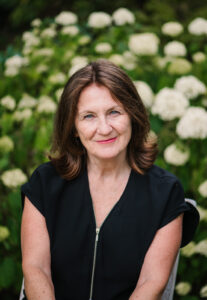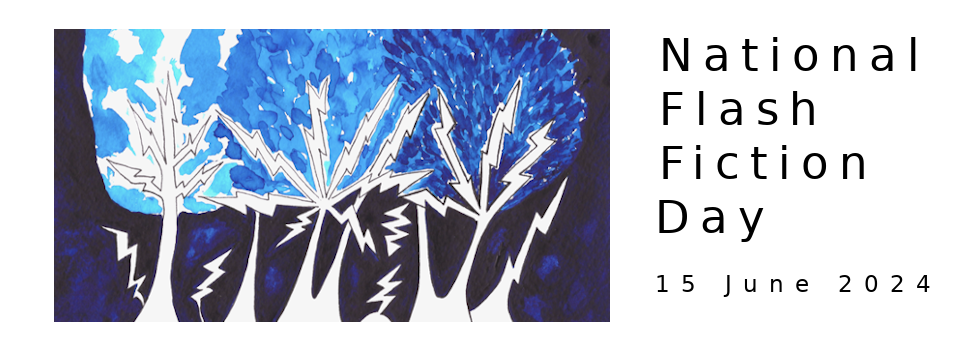Welcome to the fifth in our series of interviews with this year's National Flash Fiction Day Anthology editors and Microfiction Competition judges! Submissions for the Anthology and Microfiction Competition are open from 1 December 2021 to 15 February 2022.
This week, Diane Simmons chats with Damhnait Monaghan, one of this year's judges for the 2022 NFFD Microfiction Competition, about writing from life, favourite childhood books, and writing everything from micros to novells-in-flash to novels....

Diane: Your novella-in-flash The Neverlands was published by V. Press in 2019. Many of the flash fictions within are very short and might be classed as microfiction. Do you have any tips for entrants to the microfiction competition on how to write a successful story of a hundred words or fewer?
Damhnait: Writing a complete story with a narrative arc in 100 words is challenging. But it might be my favourite flash form. I tend to write the first draft without worrying too much about the word count (within reason). I write long, then slash back. It’s like solving a puzzle; I enjoy it immensely.
There is a wealth of brilliant advice available online from previous judges of this competition. My tip is specifically aimed at those who are new to the 100 word micro. Study what other writers have accomplished in 100 words. Read widely in the form, not to copy, but to learn. Look at word choice, narrative arc, titles, the entire package. Read some of the pieces out loud to explore cadence and rhythm. Then write YOUR 100 words, the ones that only you could.
Diane: Your novel New Girl in Little Cove (Harper Collins) came out to great reviews earlier this year. Do you think your novel writing has been influenced by your flash fiction writing at all?
Damhnait: Thank you. I’m still smiling.
I turned to flash after shelving an earlier version of New Girl in Little Cove. I’d queried widely and come close a few times, but ultimately failed. But the characters kept whispering in my ear, so eventually I went back and completely rewrote it. I firmly believe that my deep dive into flash writing helped immensely. Obviously, there’s more room to manoeuvre in a novel, but the flash writer’s toolbox – word choice, emotion, resonance, someone or something changing (or failing to) – applies equally to longer form writing. I also think writing flash hones your editing skills. You learn to be quite ruthless at the sentence level. Cut, change, revise. Get it down quickly, then make it better slowly, is the way I now approach writing of any length.
Diane: I know you are a great reader of fiction. Did you read much as a child? If so, was there one particular book or short story that you still hold particularly dear?
Damhnait: I read obsessively as a child. The library was my great friend and still is today. I loved finding a series: the Bobbsey Twins, the Little House books, Nancy Drew – I could go on. But the book (and series) I still hold dear is Anne of Green Gables. Long after my childhood ended, it remained my comfort read. There’s even a reference to it in the opening chapter of my debut novel; my protagonist Rachel compares her arrival in Little Cove to Anne’s arrival in Avonlea. I was thrilled when a recent reader described New Girl in Little Cove as “an updated Anne of Green Gables for adults.”
Diane: If you borrow from your own life to write flash fiction, do you have a period (i.e. child, teenager, adult), that you write about most often?
Damhnait: Don’t we all? My strongest writing is inspired by my own experiences or those I observe around me. I take a personal memory or emotional reaction to an event and tweak or twist it to make it fiction. There isn’t a particular period in my life on which I focus. I’ve borrowed from childhood and adulthood. Rather it is the intensity of the feelings that the incident aroused in me. The stronger that feeling or reaction, the stronger the writing will be.
Damhnait Monaghan was born and grew up in Canada but now lives in the U.K. Her flash fiction has won or placed in various competitions and is widely published and anthologised. She has been nominated for the Pushcart Prize, Best Small Fictions, and Best Microfictions. Her novella in flash The Neverlands (V.Press) won Best Novella in the 2020 Saboteur Awards. Her debut novel New Girl in Little Cove is out now with Harper Collins.
